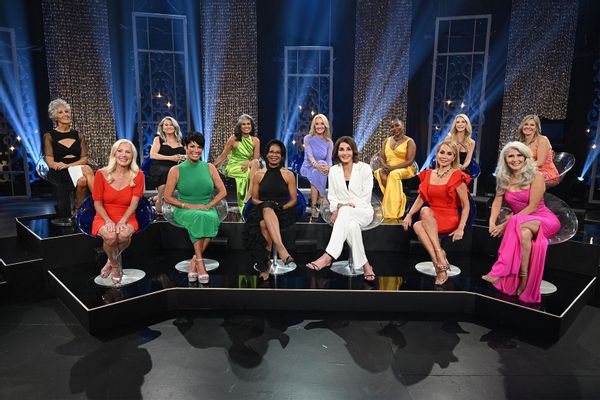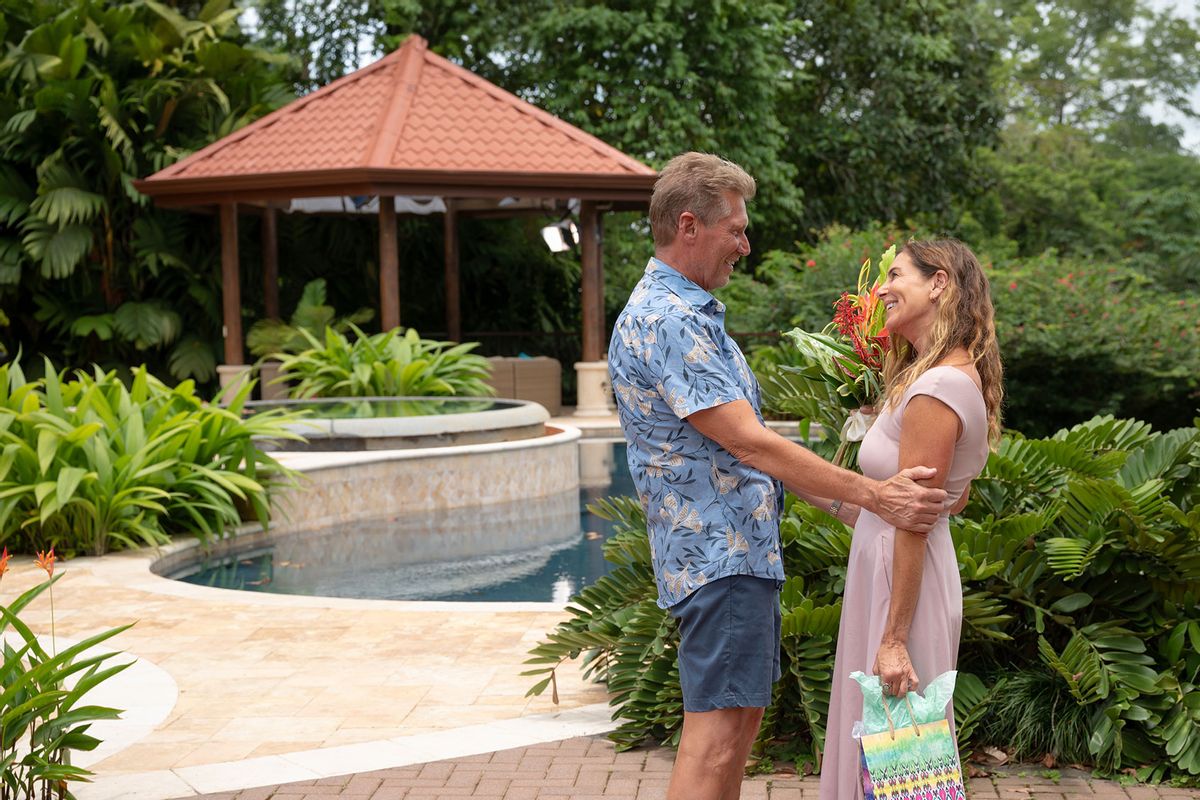For years, I’ve been hoping for a reality show about senior citizens. Inspired by my mother-in-law’s stories about her retirement community, where the cliques and intrigue rival those of a middle school, I’ve been holding my breath that some producer would see this demographic’s possibilities.
So, this Thursday, when Gerry Turner, 72, makes his choice between Leslie Fhima, 64, and Theresa Nist, 70, on the season finale of "The Golden Bachelor," I’ll be watching. I expected "The Golden Bachelor" to be good TV, and I haven’t been disappointed. I expected the show to offer some sociological insights into aging, and it does.
But there’s a broader lesson in the show. In between the pickleball and the self-deprecating jokes about failing body parts, "The Golden Bachelor" shows us the worst and best aspects of reality TV — and, by extension, ourselves.
What makes a body desirable, and who gets to be seen, remain largely the same.
At its worst, reality TV teaches us how we gatekeep who gets to be seen as legitimate — and who gets to be seen at all. The world of "The Bachelor," for instance, has been a place where white, conventionally hot people link up with other white, conventionally hot people, the sole acceptable goal being monogamous, heterosexual marriage. The show’s lack of diversity and its narrow parameters for acceptable bodies have become a shared cultural joke. In a 2019 "Saturday Night Live" spoof ("Virgin Hunk"), for instance, one contestant tells the Bachelor, “I’m Black and I have short hair so I just want to say, ‘Goodbye.’”
While the franchise has made efforts to diversify its casts in recent years, the contestants still adhere to conventional gender roles almost religiously, the women sporting bedazzled evening gowns and the men rocking chiseled abs.
In these senses, "The Golden Bachelor" follows in the footsteps of its predecessors. Yes, there is some sagging skin. One contestant, Renee Halverson-Wright, steps out of the limo in a tracksuit rather than a gown. Some contestants, like Susan Noles (Kris Jenner and Liza Minelli’s lovechild?), have very short hair. Sandra Mason, a 75-year-old Black woman with short(-ish) hair makes it all the way to Episode 5!
 Thirteen rejected "Golden Bachelor" contestants: Patty, Pamela, Marina, Christina, Natasha, Joan, Nancy, Ellen, Susan, Sandra, Kathy, April and Edith (Disney/John Fleenor)Still, Gerry eliminates the tracksuit contestant in the first rose ceremony. There are only a handful of women of color, none of whom make it to the hometown dates. One of these contestants, Marina Perera, simply disappears between episodes, her departure not addressed on the show. All of the silver-haired contestants are gone by the end of the third episode. And while the bodies are more diverse than those on the original-recipe "Bachelor," the three finalists are slim, white-presenting women. One is a fitness instructor.
Thirteen rejected "Golden Bachelor" contestants: Patty, Pamela, Marina, Christina, Natasha, Joan, Nancy, Ellen, Susan, Sandra, Kathy, April and Edith (Disney/John Fleenor)Still, Gerry eliminates the tracksuit contestant in the first rose ceremony. There are only a handful of women of color, none of whom make it to the hometown dates. One of these contestants, Marina Perera, simply disappears between episodes, her departure not addressed on the show. All of the silver-haired contestants are gone by the end of the third episode. And while the bodies are more diverse than those on the original-recipe "Bachelor," the three finalists are slim, white-presenting women. One is a fitness instructor.
It’s telling that, when Jimmy Kimmel’s Aunt Chippy, 84, approaches Gerry in the first episode, she is a source of comedic relief. Surely this woman – older, rounder – could not be a serious contender for Gerry, the show tells us — though some of the other contestants are nearly as far apart in age from Gerry, in the other direction. Though this season brings a new demographic to the "Bachelor" franchise, the messages about what makes a body desirable, and who gets to be seen, remain largely the same.
During its history, reality TV has often made the invisible visible.
At the same time, "The Golden Bachelor" demonstrates some of the possibilities inherent in reality TV. Yes, we tune in for the train wreck factor, but there’s often an emotional core to these shows. At its best, reality TV draws us into worlds that are not our own, making us care for people who are different from ourselves. In fact, research suggests that we may be more likely to forge intimate, parasocial relationships with reality stars, whom we know as “themselves” rather than as actors portraying fictional characters.
In its most poignant moments, "The Golden Bachelor" teaches us about the canny ability of near-strangers to bond over loss and grief. It shows us how women can lift each other up, even if they’re competing for the same guy within the stressful artifice of a reality show. It demonstrates the invisibility associated with aging but also pushes back against that invisibility.
Want a daily wrap-up of all the news and commentary Salon has to offer? Subscribe to our morning newsletter, Crash Course.
During its history, reality TV has often made the invisible visible. From drag queens to doomsday preppers, it has shined a light across areas of our social topography that remain less explored by other media. For instance, while there’s never been an explicitly queer season of "The Bachelor," other reality shows have been giving us LGBTQIA+ stories for decades — long before scripted TV got the memo. While this genre shows us the lines we draw in the sand, it also opens the door to endless configurations of human possibility.
And, when it comes to relatively overlooked groups, why not the senior set? They’re a large portion of our population (one in six Americans, as of the 2020 Census) — and, if my mother-in-law’s experiences are any indication, their stories are . . . well, gold.
Read more
about reality TV

Shares